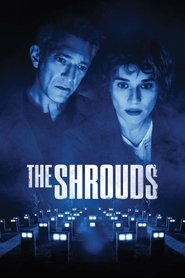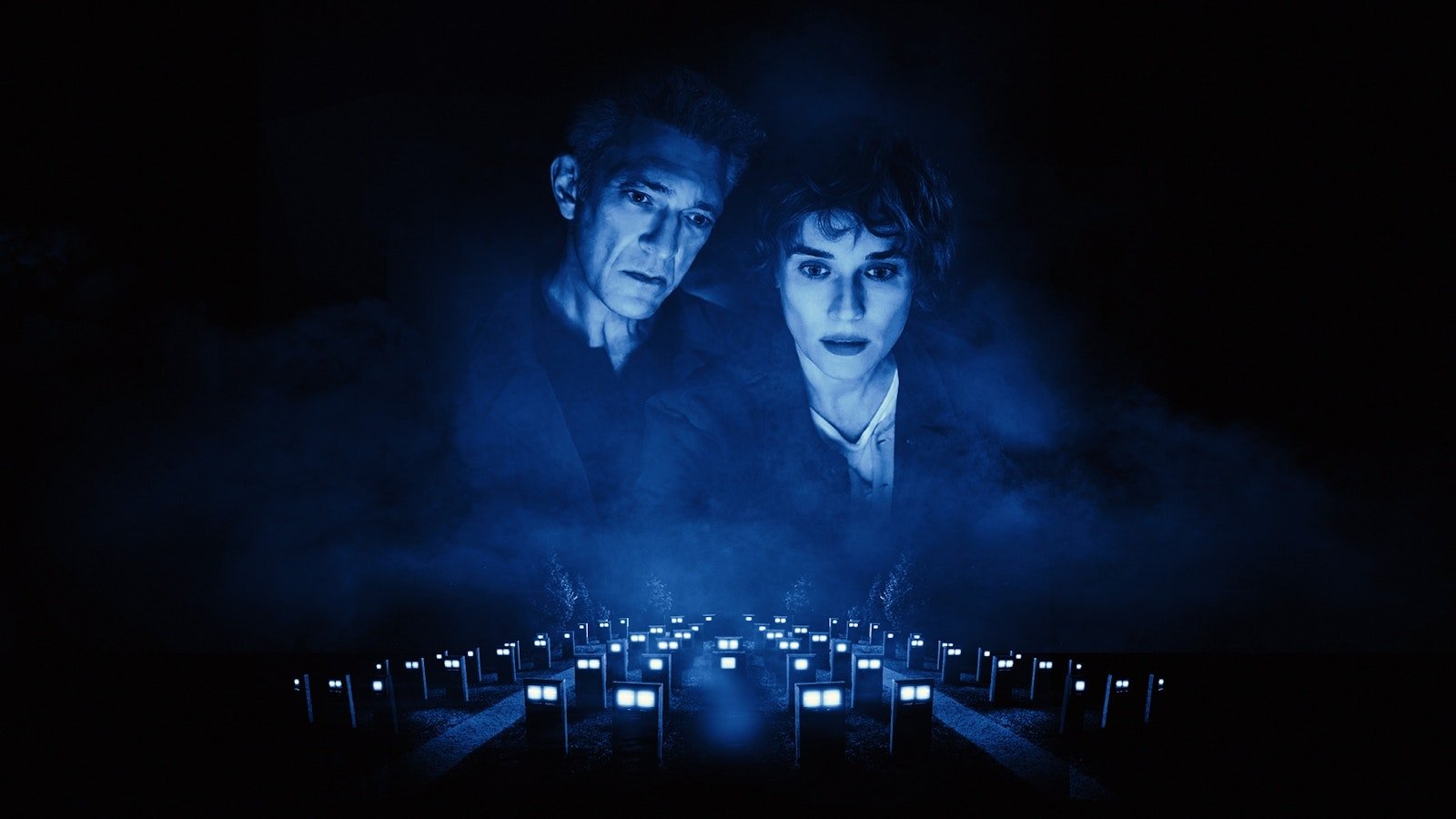Read Watching The Shrouds (2025) Online
Watch The Shrouds (2025) Movie

Inconsolable since the death of his wife, Karsh, a prominent businessman, invents a revolutionary and controversial technology that enables the living to monitor their dear departed in their shrouds. One night, multiple graves, including that of Karsh’s wife, are desecrated, and he sets out to track down the perpetrators.

How dark are you willing to go? - artificial intelligence (a.i.)
## Buried Secrets, Unfurled Shrouds: A Deep Dive into Cronenberg's Disturbing New Film
David Cronenberg's "The Shrouds" is not for the faint of heart. It’s a chilling, deeply personal exploration of grief, technology, and the inescapable decay of the human body. While marketing might have leaned heavily on the horror aspects, "The Shrouds" is fundamentally a character study steeped in psychological unease, and a powerful rumination on mortality. Consider this your spoiler warning: we’re diving deep into the film’s core themes and plot points.
Vincent Cassel delivers a phenomenal performance as Karsh, a grieving widower who invents GraveTech, a technology that allows him to virtually observe his deceased wife, Becca, as she decomposes within her shroud-covered coffin. The system uses nanobots and advanced AI to provide real-time visuals and data about the decomposition process, supposedly as a tool to help others cope with loss. However, for Karsh, GraveTech is an obsession, a desperate attempt to hold onto Becca, even in her post-mortem state.
The film kicks into high gear when numerous gravesites begin to be vandalized, and the shrouds covering the bodies are torn open. This throws Karsh into a spiral of paranoia. Is someone desecrating Becca's grave? Is GraveTech somehow responsible? He is soon drawn into a complex conspiracy involving a shadowy organization, potentially cult-like, with a bizarre fixation on death and the digital afterlife.
This is where the Cronenbergian body horror subtly creeps in. We see snippets of the live feeds from the shrouds, glimpses of the decomposition process, but it’s never gratuitously graphic. The horror lies in the unsettling intimacy of the technology, the voyeuristic nature of witnessing the body's natural breakdown. It challenges our relationship with death, forcing us to confront its inevitability in the sterile, digital age.
The plot thickens as Karsh investigates the grave vandalisms, assisted by his sister, Miranda (Diane Kruger), who holds a deep-seated resentment towards him and his obsessive relationship with Becca. Miranda provides a grounded perspective, questioning Karsh's sanity and the ethical implications of GraveTech. Their fractured relationship adds another layer of emotional complexity to the already dense narrative.
The "cult" element is ultimately less about supernatural rituals and more about a twisted interpretation of transhumanism. They believe in harnessing technology to transcend death, perhaps even uploading consciousness. The vandalisms are not random acts of desecration but deliberate attempts to disrupt GraveTech and expose what they perceive as its dangerous potential to control the afterlife.
Ultimately, Karsh discovers that the "cult" is manipulating GraveTech to create a digital afterlife, using the shroud technology to capture and preserve a form of consciousness. He is forced to confront the horrifying implications of his invention and the potential for it to be misused.
The ending of "The Shrouds" is deliberately ambiguous. While Karsh manages to disrupt the organization's plans, the film leaves the audience questioning whether he truly escaped the digital trap or if he is still trapped in his obsession with Becca. The final shot lingers on the GraveTech system, humming quietly, suggesting that the lure of the digital afterlife remains a powerful, albeit unsettling, force.
"The Shrouds" is a challenging and thought-provoking film. It’s a meditation on grief, technology, and the enduring human desire to conquer death, a desire that, in Cronenberg's vision, can lead down a dark and disturbing path. It's a film that will stay with you long after the credits roll, prompting reflection on our own mortality and the increasingly blurred lines between life and death in the digital age. While the horror elements are present, the true fear lies in the film's exploration of our deepest fears and the potentially devastating consequences of unchecked technological ambition.